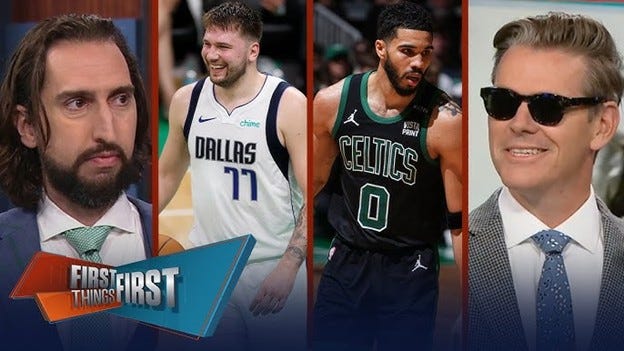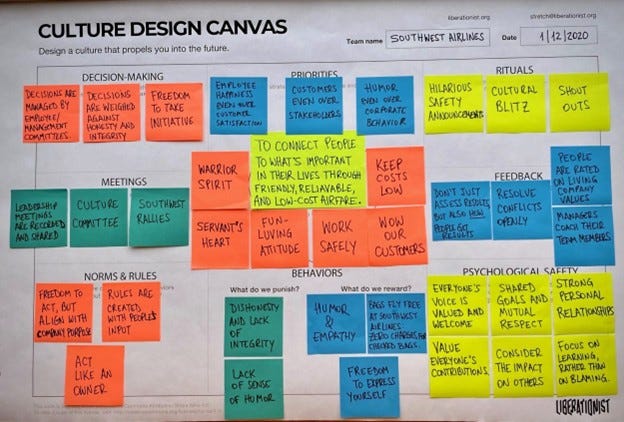Hidden Talents, Winning Teams (part 3)
Weak links and non-negotiables
Heading into last season’s NBA Finals, the numbers seemed to favor the Boston Celtics over the Dallas Mavericks. During the season, the Celtics had won 64 of 82 games with an average point differential of +11.3—the 5th highest mark in NBA history. The Mavericks, meanwhile, had won just 50 games, with a point differential of +2.1. The playoffs were more of the same. The Celtics had gone 12-2 on their way to the finals; the Mavericks, 12-5.
So why did more than half of the NBA experts at ESPN pick the Mavericks? Why did both senior analysts from the popular show First Things First on Fox do the same?
Let’s let Fox’s Nick Wright explain why he picked the Mavericks to win, 4 games to 1:
“I think Luka is the best player in the series. I think he’s the best player in the world right now. I trust Luka to get it done in a way that I don’t trust anyone on the Celtics to do it.”
There is some logic to this explanation. After all, nearly every champion in NBA history has included either the best or nearly the very best player in the league that season. In the book, “The Numbers Game,” (2013) authors Chris Anderson and David Sally contrasted the “Strong Link sport” of basketball with the “Weak Link sport” of soccer. They argued that the best way to upgrade a basketball team was to improve the best player, while the best way to upgrade a soccer team was to improve the worst player. NBA history seems to validate this idea. And Luka Doncic, the Mavericks best player, was playing at a higher level than anyone else in the NBA. Meanwhile, the Celtics’ best player, Jayson Tatum, seemed to be tired at less than his best.
So what happened? Well, Nick Wright was correct about who would be the best player in the series. Luka Doncic averaged 29 points, 8 rebounds and 6 assists, compared to Tatum’s 22, 7 and 7. Doncic shot 47%; Tatum shot just 39%.
…and the Celtics won the series, 4 games to 1. None of the games were particularly close.
So what made the Celtics so difficult to beat, both in the regular season, and in the playoffs, and in the finals? Why were they able to withstand a sub-par performance from their best player?
The short answer is, they were a very good team. The Celtics had so much talent that three of their four American starters made the US Olympic team—and the only one not selected for that team won both Conference Finals MVP and Finals MVP. Their 5th starter was a 7-3 former All Star playing as well as he’d ever played.
The more important answer is in how these players enabled their team to play. Because all of their players could make 3-point shots, they could run a run a vaunted “5-out” offense, opening up the area around the basket for drives to the basket. Because they could all pass and drive, they could run an equal-opportunity offense in which the defense never knew who would attack. Because all of their players were strong defensively against different types of players, there was no one for the opponent to attack. Everything the opponent tried to do was difficult.
When they made substitutions, the players who came in did not have the talent of their starters, but they all had the same qualities: they could all shoot 3-point shots, they could all dribble and pass, and they could all defend. As a result, the Celtics could continue to run the same extremely effective offensive and defensive schemes all game long.
Contrast this to the Mavericks. While Luka Doncic was the best offensive player in the series, his defense was sub-par. The longer the series went, the more the Celtics went after him, earning easy shot after easy shot. For all the points he created on offense, Doncic gave up nearly as many on the other end.
The Celtics were able to beat the Mavericks (and every other opponent), not because they had the best player, or even because they had the highest number of really good players, but because every player they put on the floor had a common mixture of skills—3 point shooting, ball-handling, passing, and defense—that allowed them to play in a way no other team could match.
This philosophy only worked because all of their players had all of these skills. The moment they would have inserted a player who, say, could shoot well but could not defend, or could score near the rim but not make a 3-point-shot, everything would have fallen apart. They would have lost their entire advantage.
The point is this: In general, basketball may be a “strong link sport,” but not always. In this case, the strength of the team came not from the best player, but from the worst. And not from all players being generically “good,” but from having a specific mix of skills that made their team able to excel in a specific way.
Some successful businesses have looked at their team’s the same way. They have certain non-negotiables that they know they need everyone on their team to share, or the way they do things will fall apart.
Many companies talk about generic non-negotiables like “character” and “integrity” and “kindness.” Those matter, sure, but that is not what we’re talking about.
Look at the list of skills the Celtics’ players need again. It is not, “needs to work diligently,” it is “needs to reliably make 3-point shots.” This is a very specific skill that many people don’t have, but that everyone on the Celtics needs.
As mentioned in a previous post, finding players at certain positions who can do that is difficult, which is why most teams cannot play this style. But if you do have them, and you can play that style, it is a major advantage.
Let’s look at a couple examples of similar ideas in business.
McKinsey & Co. famously hires people with little or no experience. It is popularly believed that they hire all of their Associates fresh out of business school, but that is not actually the case. There are PhDs in chemistry and philosophy, former Peace Corps volunteers, military veterans, medical doctors, and on and on. There is a great diversity of backgrounds.
But every consultant McKinsey hires, regardless of background or age or geography, has high aptitude in a few key areas. They can break down a complex problem into component parts, ensuring each one is mutually-exclusive and collectively exhaustive. They can make quick mental calculations and sense-check the resulting implications of assumptions. They can communicate clearly and concisely.
These are not skills everyone in the world has. And they are not required for every job, or in every system. But for McKinsey, if a single consultant cannot do each of these things, the entire process of communication within the team collapses. These are therefore the non-negotiables that go into the hiring and evaluation processes everywhere in the world.
Let’s look at Southwest Airlines. Here is a whiteboard with their “cultural design canvas”. Notice anything unusual?
How about at the bottom in the middle: What behaviors do we punish? A lack of sense of humor. Don’t be humorless at Southwest—you won’t make it.
Ask yourself, what are your non-negotiables? What are the elements of your culture or your system that drive your advantage over your competitors, and what skills are required of every employee—or at least every employee within a certain category of role—to ensure that you maintain and even grow that advantage?
Try to move beyond generic answers like “team player” and to specific answers, like “reliably make three-point shots” and “defend multiple positions effectively.”
Are you explicit about these skills? Are you testing for those skills in your hiring process? Are you working with your existing staff to develop them?
If you want to win, you should consider doing all of this and more.
Thanks,
The Impactful Executive Team
PS - free free to share this newsletter with anyone that would find it useful.
Whenever You’re Ready, There Are 3 Ways We Can help You:
Find out more about TIE’s Top Team High Performance Program. Visit ImpactfulExec.com, read our 5-slide TIE teaser or 20-slide full TIE introduction.
Score your organizational health. Measure across our three levers, three levels, and nine elements using our 7-min Diagnostic assessment and emailed pdf report.
Improve your top team’s performance. Send us an email if you have further questions and schedule a 15-min triage call to see if we can help you.





